Table of Contents
Introduction
Ranking high on Google isn’t just about optimizing your website—it’s about building your presence beyond it. That’s where off-page SEO comes in, shaping how the internet perceives your brand and how search engines measure your authority.
Off-page SEO focuses on all external factors that strengthen your online reputation, such as backlinks, mentions, and social engagement. These elements tell Google that your website is trustworthy, relevant, and worth recommending to users.
Mastering off-page SEO isn’t a one-time tactic—it’s a long-term strategy built on relationships, content quality, and consistency. Let’s dive into the top ten off-page SEO techniques that can supercharge your website’s visibility and help you outrank your competitors.
#1. Quality Link Building
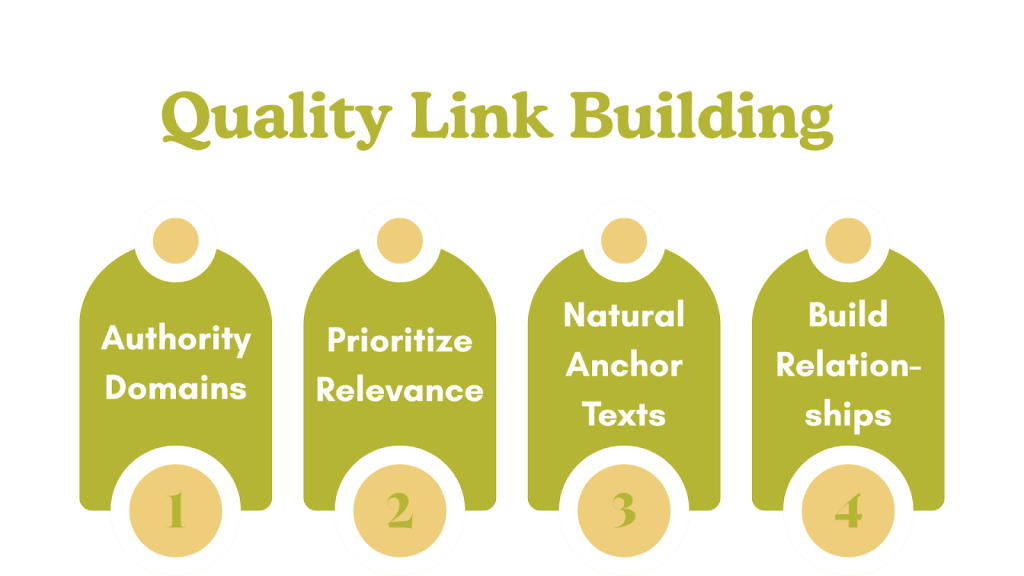
- Authority Domains: Earning backlinks from authoritative websites signals to Google that your site is trustworthy and credible. Prioritize domains with high domain authority and solid reputation within your niche.
- Prioritize Relevance: Always aim for topically relevant backlinks. A link from a site in your industry reinforces the context of your content, improving your visibility for related search queries and ensuring a stronger organic reach.
- Natural Anchor Texts: Avoid over-optimizing your anchor text. Keep it descriptive yet organic to maintain balance and prevent search engine penalties. Natural anchor texts enhance the user experience and signal authenticity.
- Build Relationships: Networking with industry experts, bloggers, and journalists can open long-term opportunities for backlinks and collaborations. Building genuine relationships often leads to consistent link acquisition over time.
#2. Guest Posting on High-Authority Sites
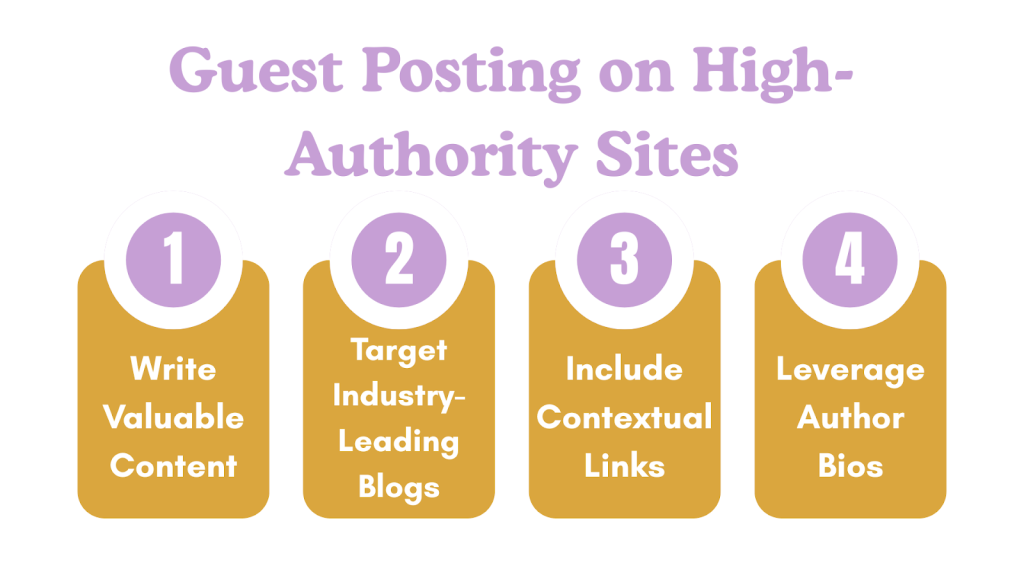
- Write Valuable Content: When you contribute guest posts, focus on delivering insightful, original, and actionable content. Editors and audiences appreciate posts that solve problems and offer practical value.
- Target Industry-Leading Blogs: Choose platforms that already have strong domain authority and engaged readership. Posting on respected websites amplifies your exposure and builds credibility in your industry.
- Include Contextual Links: Integrate your backlinks naturally within the flow of your article. Contextual links drive more meaningful traffic and appear more authentic to search engines.
- Leverage Author Bios: Use your author bio smartly—highlight your expertise, company, and include a link to your website. It reinforces your authority and strengthens your off-page profile.
#3. Social Media Engagement
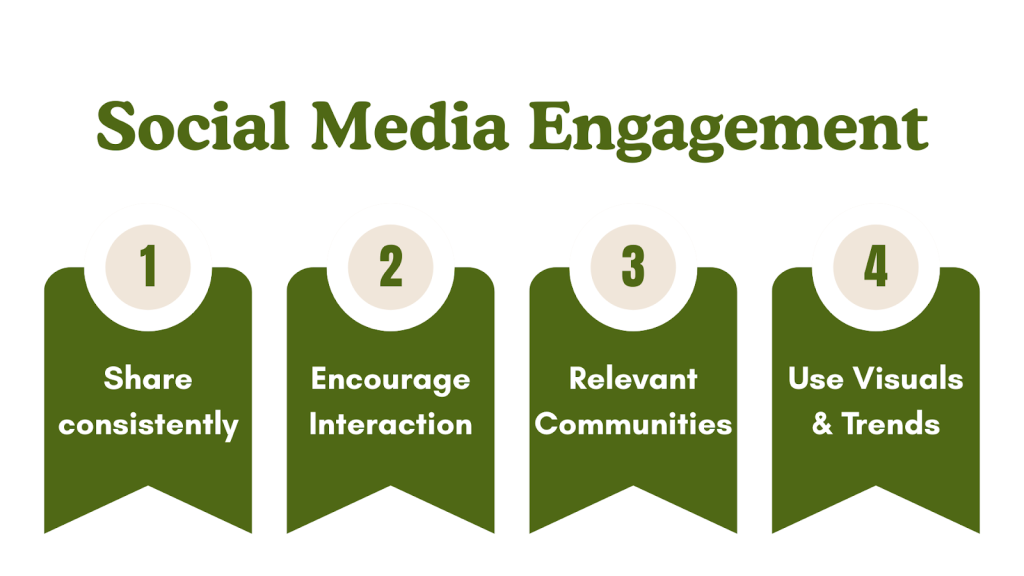
- Share consistently: Maintain an active posting schedule to keep your audience engaged. Frequent sharing helps build brand visibility and ensures your content circulates across multiple platforms.
- Encourage Interaction: Engage with followers through polls, comments, and stories. The more people interact with your content, the more signals you send to search engines about its popularity.
- Relevant Communities: Be part of niche-specific groups where your target audience interacts. Providing advice or resources in these spaces can attract traffic and build recognition.
- Use Visuals & Trends: Enhance your content with visuals, infographics, and short videos. Visual storytelling increases shares, click-throughs, and audience retention.
#4. Influencer Outreach
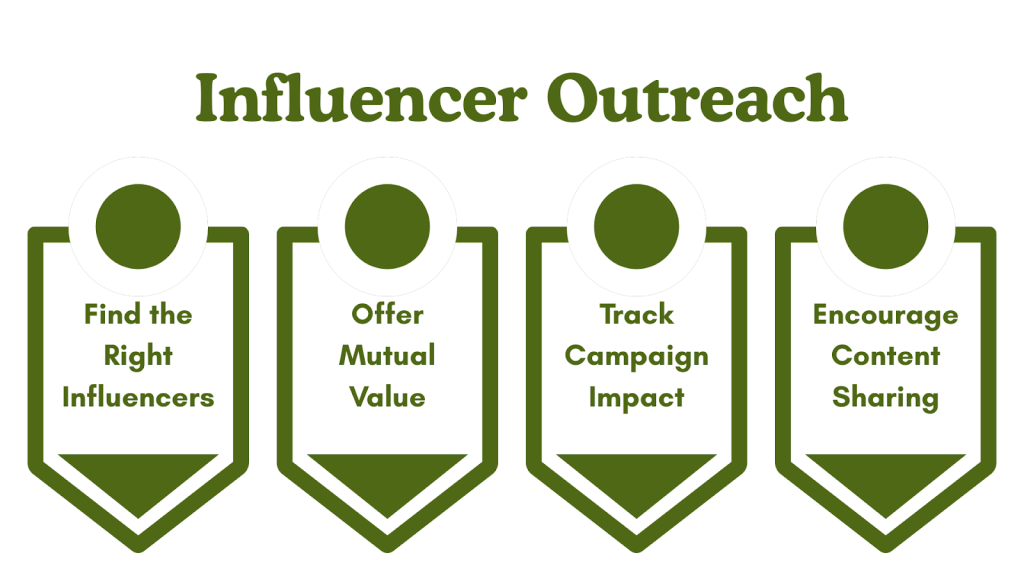
- Find the Right Influencers: Team up with influencers who resonate with your target audience and align with your brand values. Their support not only broadens your reach but also instantly boosts your credibility.
- Offer Mutual Value: Rather than just asking for a shout-out, think about creating partnerships that benefit both parties—like sharing exclusive insights, co-creating content, or engaging in sponsored collaborations.
- Track Campaign Impact: Keep an eye on engagement metrics, backlinks, and referral traffic. By analyzing this data, you can fine-tune your outreach strategy and zero in on the partnerships that really deliver results.
- Encourage Content Sharing: When influencers share your content with their followers, it not only raises brand awareness but also enhances backlinks and drives quality traffic back to your website.
#5. Forum Submissions & Community Participation
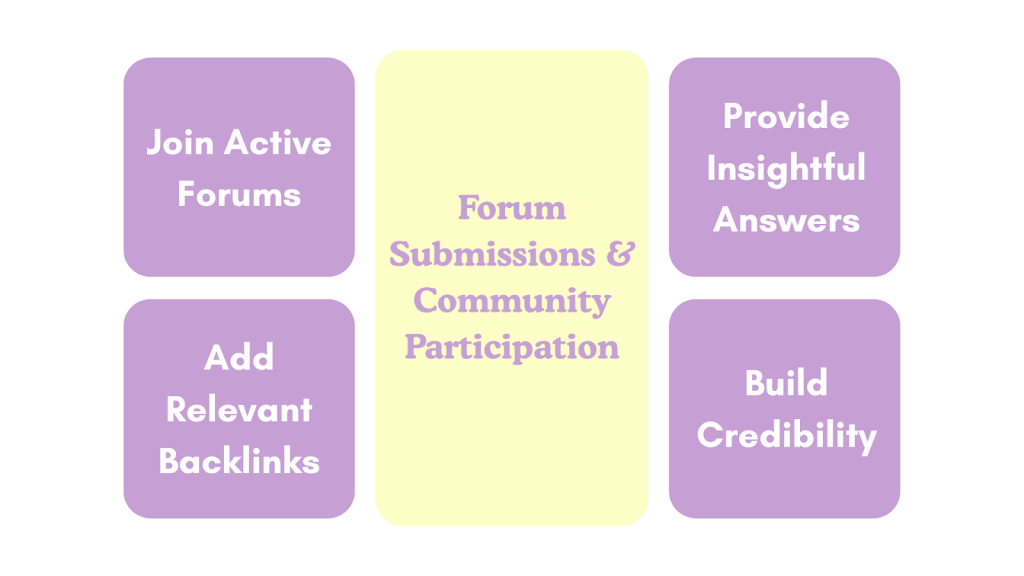
- Join Active Forums: Participate in popular and reputable communities such as Reddit, Quora, or niche forums. These spaces are filled with potential readers who value expertise.
- Provide Insightful Answers: Focus on solving problems and contributing knowledge rather than self-promotion. Authentic contributions make your presence more trusted.
- Add Relevant Backlinks: When suitable, add links to your blog posts as supporting resources. These backlinks can drive long-term referral traffic if done strategically.
- Build Credibility: Over time, consistent engagement positions you as an authority figure. People are more likely to trust and follow brands that actively contribute to their interests.
#6. Directory & Local Listings
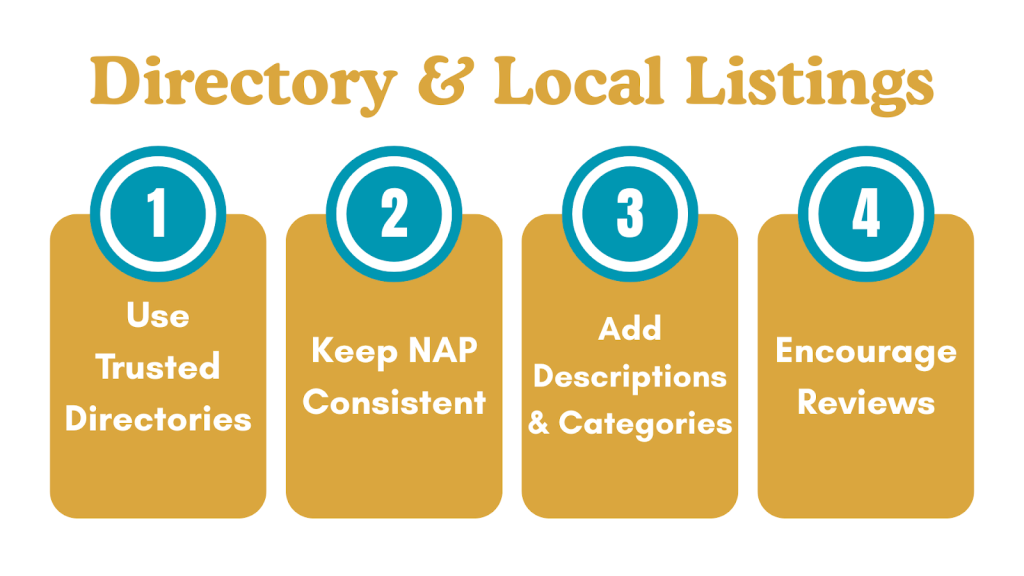
- Use Trusted Directories: List your business in reputable directories like Google Business Profile, Yelp, and Bing Places. It enhances your visibility in local search results.
- Keep NAP Consistent: Ensure your Name, Address, and Phone Number are identical across every listing. Consistency reinforces your brand identity and improves SEO signals.
- Add Descriptions & Categories: Include comprehensive business details and select accurate categories. This helps Google understand your services and rank you for the right keywords.
- Encourage Reviews: Ask satisfied customers to leave genuine reviews. Positive feedback not only builds trust but also impacts local ranking factors.
#7. Content Marketing & Syndication
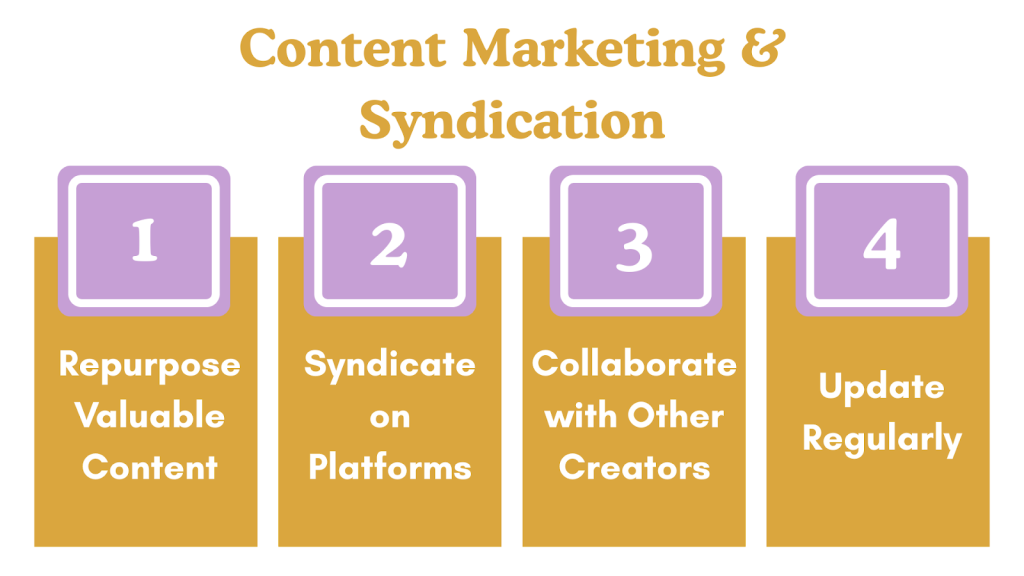
- Repurpose Valuable Content: Transform existing blogs into different formats—like infographics, podcasts, or videos—to reach varied audiences and platforms.
- Syndicate on Platforms: Publish on Medium, LinkedIn Pulse, or industry portals to extend your content’s reach and earn organic backlinks.
- Collaborate with Other Creators: Joint projects with influencers or fellow marketers expand exposure and help share audience bases effectively.
- Update Regularly: Keep your content evergreen by updating it with the latest data and trends. Fresh content maintains ranking consistency.
#8. Brand Mentions & Online Reputation Management
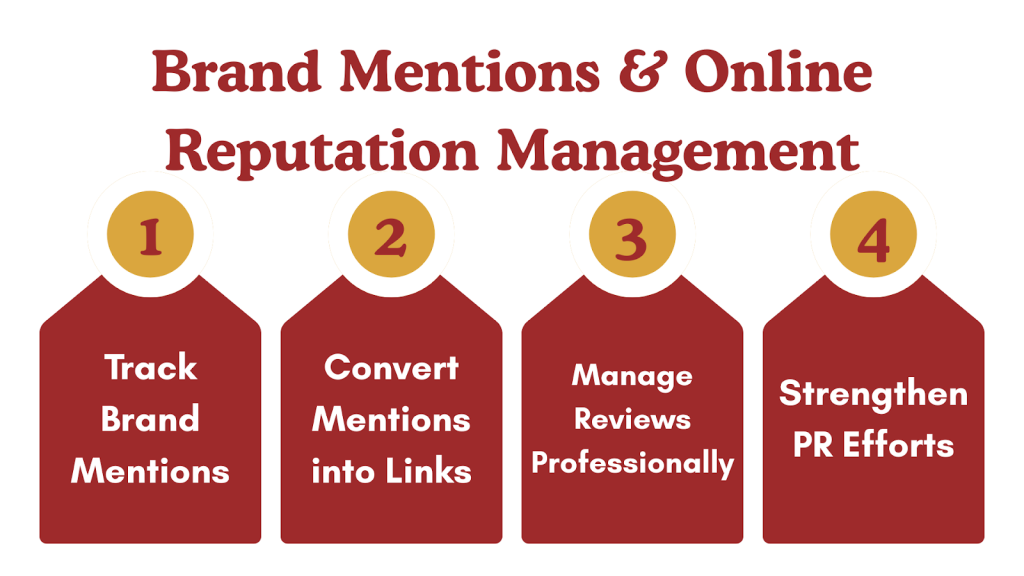
- Track Brand Mentions: Monitor online conversations using tools like Ahrefs Alerts, Google Alerts, or Mention. Staying aware of who’s talking about you allows timely engagement.
- Convert Mentions into Links: Reach out to authors who mention your brand but don’t link back. A polite request often turns unlinked mentions into valuable backlinks.
- Manage Reviews Professionally: Respond to all reviews promptly, whether positive or negative. Good customer service strengthens your brand image and user trust.
- Strengthen PR Efforts: Work on press releases, collaborations, and interviews. Consistent PR efforts help maintain a positive online reputation and authority.
#9. Broken Link Building Strategy
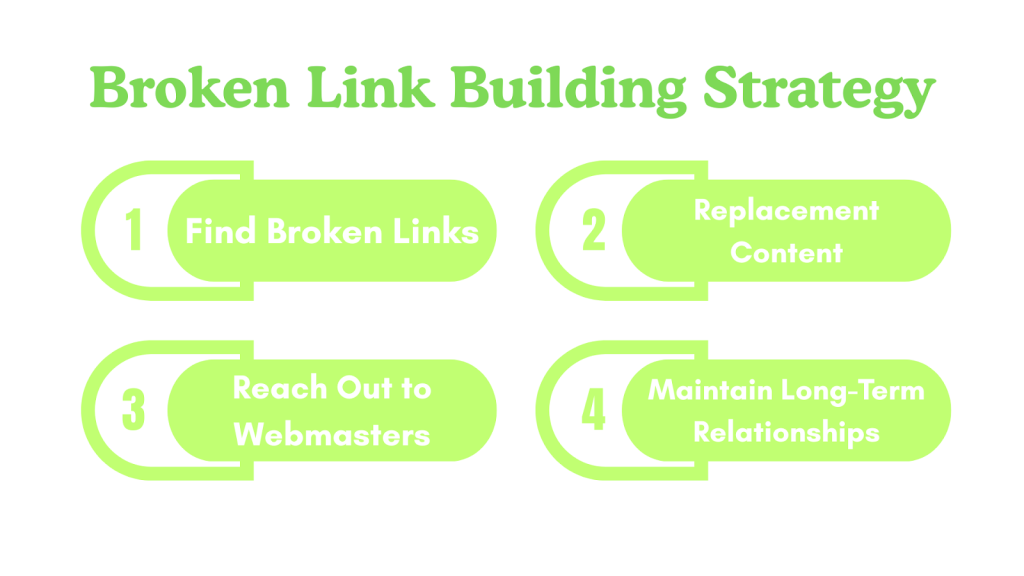
- Find Broken Links: Use SEO tools like Ahrefs or Screaming Frog to locate broken links on high-authority sites in your niche.
- Replacement Content: Develop relevant and updated content that can serve as a substitute for the broken link. Ensure it provides equal or greater value.
- Reach Out to Webmasters: Send a professional outreach email offering your replacement link. Webmasters appreciate quick fixes that maintain site quality.
- Maintain Long-Term Relationships: Once your link is placed, stay in touch with the site owner. Long-term relationships lead to more backlink opportunities.
#10. Q&A Platforms & Blog Commenting
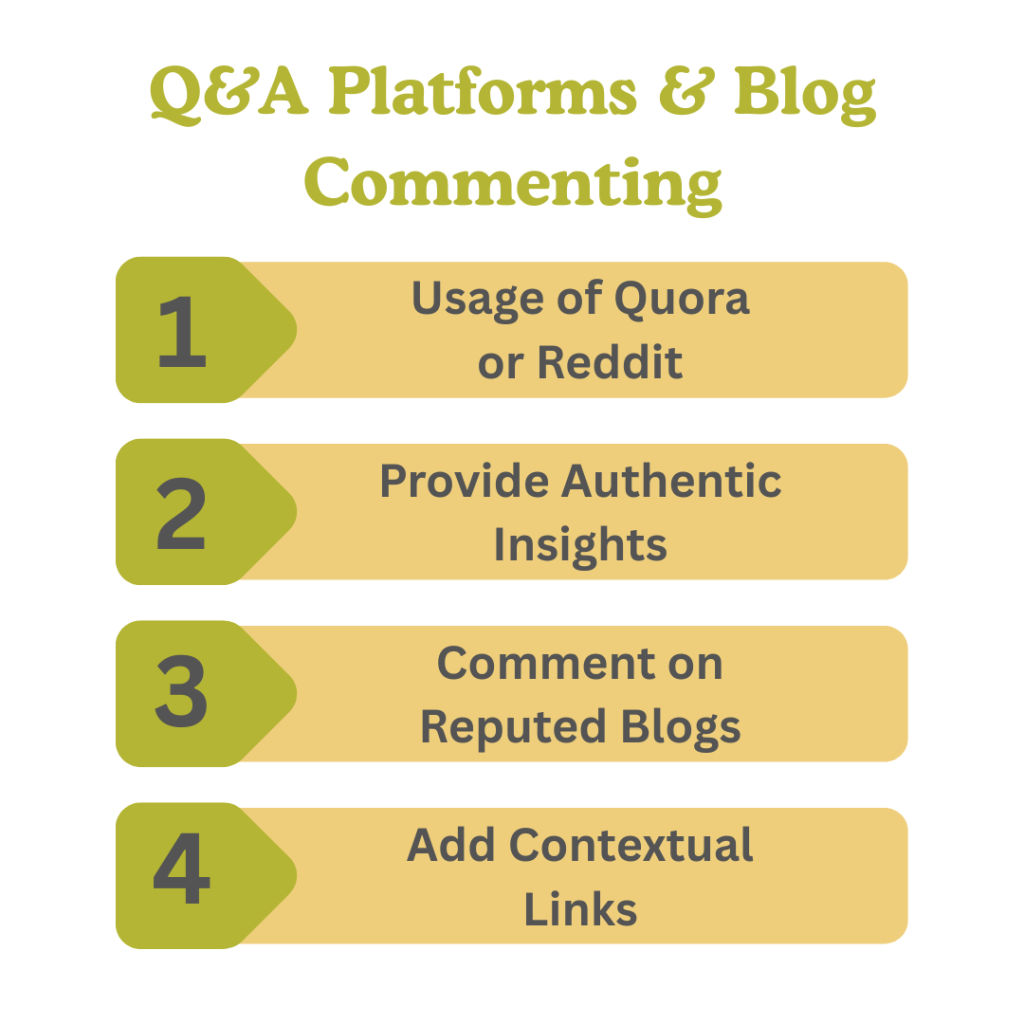
- Usage of Quora or Reddit: Engage in popular Q&A platforms where you can address real user questions and link back to your website when relevant.
- Provide Authentic Insights: Offer detailed, thoughtful answers that establish authority. Audiences respect authenticity and expertise.
- Comment on Reputed Blogs: Join the discussion on leading blogs in your industry. Insightful comments drive curiosity and attract relevant traffic.
- Add Contextual Links: Include links sparingly and only when they add real value. Overuse can appear spammy and reduce credibility.
Conclusion
Off-page SEO is like planting seeds for the future; it shapes how people view your brand over time. While your on-page efforts lay the groundwork, it’s your off-page strategy that really builds your authority and reputation.
These strategies—spanning link-building, influencer outreach, and engaging in forums—work hand in hand to create a robust online presence. The aim isn’t to game the system, but to genuinely earn your rankings through trust, relevance, and real value.
So, be patient and stay consistent with your efforts. With time, these off-page SEO practices will not only boost your Google ranking but also help you craft a strong and enduring digital brand identity.
Deepak Wadhwani has over 20 years experience in software/wireless technologies. He has worked with Fortune 500 companies including Intuit, ESRI, Qualcomm, Sprint, Verizon, Vodafone, Nortel, Microsoft and Oracle in over 60 countries. Deepak has worked on Internet marketing projects in San Diego, Los Angeles, Orange Country, Denver, Nashville, Kansas City, New York, San Francisco and Huntsville. Deepak has been a founder of technology Startups for one of the first Cityguides, yellow pages online and web based enterprise solutions. He is an internet marketing and technology expert & co-founder for a San Diego Internet marketing company.



